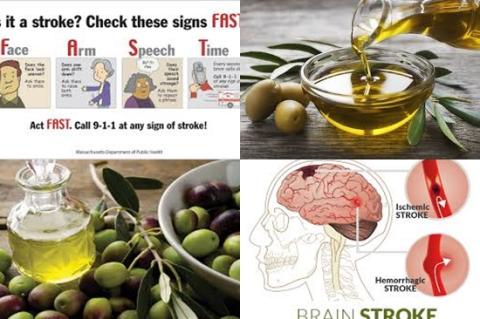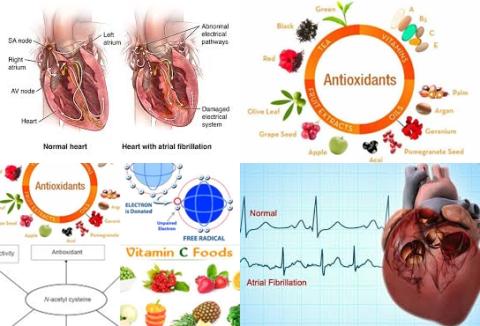Olive oil consumption reduces stroke

Objectives:
Increasing evidence suggests that the Mediterranean diet can reduce the risk of cardiovascular disease. Olive oil is the hallmark of this dietary pattern. Therefore, this review article has been conducted.
Does olive oil consumption reduce risk of cardiovascular disease?
Study design:
This review article included case-control, prospective cohort studies and a randomised controlled trial investigating the specific association between olive oil consumption and the risk of cardiovascular disease (101,460 participants) or stroke (38,673 participants). The results of all observational studies were adjusted for total energy intake.
Evidence of heterogeneity was apparent for cardiovascular disease, but not for stroke. Both the Egger test (p = 0.06) and the funnel plot suggested small-study effects.
Results and conclusions:
The investigators found in case-controle studies a non-significant reduced risk of 27% [relative risk = 0.73, 95% CI = 0.44-1.21] for cardiovascular disease for a 25g increase in olive oil consumption.
The investigators found in cohort studies a non-significant reduced risk of 4% [relative risk = 0.96, 95% CI = 0.78-1.18] for cardiovascular disease for a 25g increase in olive oil consumption.
The investigators found in cohort studies olive oil consumption significantly reduced risk of stroke with 26% [relative risk = 0.74, 95% CI = 0.60-0.92].
The investigators found random-effects model showed a significant reduced risk of 18% [RR = 0.82, 95% CI = 0.70, 0.96] for combining all cardiovascular events (CHD and stroke).
The investigators concluded available studies support an inverse association of olive oil consumption with stroke and with stroke and cardiovascular disease combined. This finding is in agreement with the recent successful results of the PREDIMED randomised controlled trial.
Original title:
Olive oil consumption and risk of CHD and/or stroke: a meta-analysis of case-control, cohort and intervention studies by Martínez-González MA, Dominguez LJ and Delgado-Rodríguez M.
Link:
https://www.ncbi.nlm.nih.gov/pubmed/24775425
Additional information of El Mondo:
Find more studies/information on cardiovascular disease right here.
